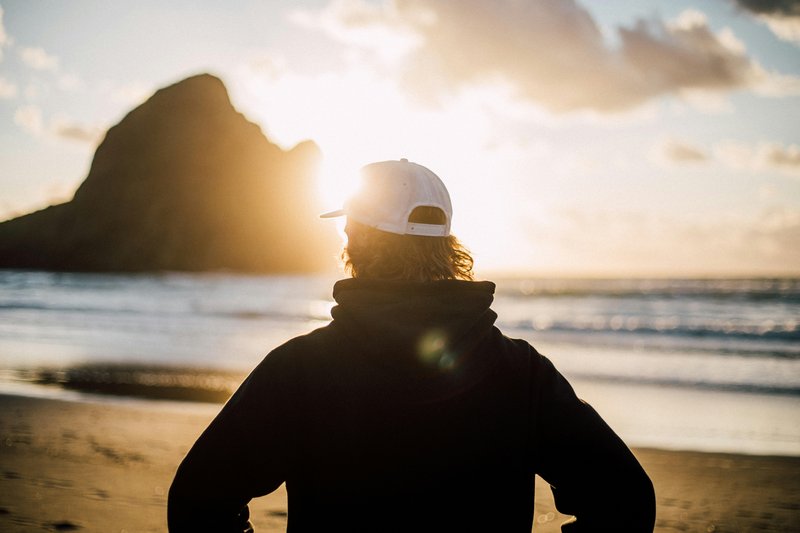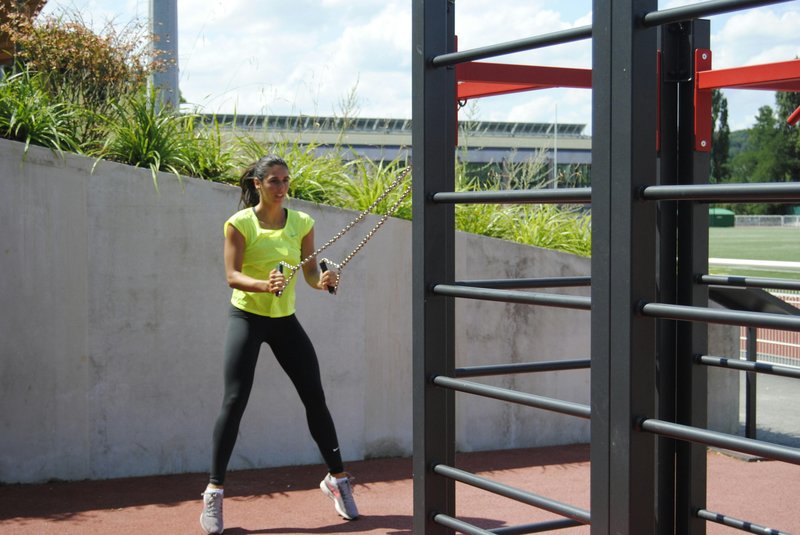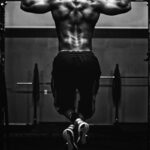☕ Your Morning Brew May Be Sabotaging Your Manhood
When it comes to male health, the connection between caffeine and testosterone is both fascinating and misunderstood. Coffee fuels the modern man—whether it’s powering through a workout or staying sharp at work. But is your daily caffeine fix helping or hurting your hormones?
The Double-Edged Sword of Caffeine
Caffeine can offer a short-term boost in alertness, energy, and even testosterone—but the long-term effects depend heavily on how much and how often you consume it. Studies show that moderate caffeine intake may support testosterone production temporarily, while excessive amounts may trigger stress responses that suppress it.
How Caffeine Affects Hormones
Caffeine stimulates the central nervous system and increases cortisol—the body’s primary stress hormone. In small doses, this isn’t harmful. But when cortisol spikes too often, it disrupts the delicate balance of other hormones, including testosterone. Chronically high cortisol = chronically low T.
Caffeine and Exercise: A Complicated Relationship
One of the reasons caffeine is often seen as testosterone-friendly is its connection to training. Pre-workout caffeine has been shown to boost power output and even cause a temporary spike in testosterone. However, if you rely too heavily on caffeine without adequate recovery or nutrition, the benefits may reverse.
Ideal Dosage for Testosterone Support
Most research suggests that 200–400 mg of caffeine per day (roughly 1–3 cups of coffee) is safe for hormonal health in adult men. Going beyond 400 mg daily may start to elevate cortisol, increase anxiety, and reduce sleep quality—all of which negatively affect testosterone.
Energy Drinks vs. Coffee: Which Is Worse?
Not all caffeine sources are equal. While black coffee contains antioxidants and virtually no sugar, many energy drinks are loaded with artificial ingredients, sweeteners, and stimulants that can wreak havoc on your endocrine system. If you’re relying on energy drinks daily, your testosterone might already be paying the price.
Can Caffeine Help Erections?
Caffeine acts as a vasodilator, meaning it temporarily increases blood flow—including to the penis. This can improve erection quality in the short term. However, chronic overconsumption may lead to increased anxiety and poor sleep, both of which hurt sexual performance. If alcohol is also part of your lifestyle, the combined effect can be brutal. Read our full breakdown of the effects of alcohol on erections.
How Caffeine Affects Sleep (and Why That Matters)
Sleep is when your body produces most of its testosterone. Even one poorly timed cup of coffee can suppress deep sleep stages and kill testosterone production for that night. If you’re drinking coffee past 2 PM and struggling with low T or weak erections, this could be the reason.
Does Quitting Caffeine Raise Testosterone?
Not necessarily. Moderate caffeine isn’t harmful and may actually support testosterone in active men. But if you’re dependent on large doses and suffering from anxiety, poor sleep, or mood swings, reducing caffeine can lead to noticeable hormonal improvements within weeks.
Signs Caffeine May Be Hurting Your Testosterone
- Constant fatigue despite high caffeine intake
- Difficulty sleeping or staying asleep
- Low libido or weak erections
- Anxiety, irritability, or mood swings
- Decreased strength or recovery in the gym
Interlinking Hormonal Factors
Caffeine doesn’t operate in isolation. Its effects are amplified (or mitigated) by your sleep, nutrition, stress levels, and age. In men over 35, testosterone naturally declines, and caffeine sensitivity increases. Learn more about the hormonal shifts with aging in our guide on male fertility decline age.
If you’re serious about maximizing your size, stamina, and testosterone naturally, access the full protocol here.
Timing Your Caffeine Intake for Optimal Hormonal Health
The time of day you consume caffeine matters more than you think. Morning is the best window—between 9 AM and noon—when cortisol naturally peaks. Drinking coffee later in the day can interfere with your sleep-wake cycle and reduce testosterone indirectly by disrupting rest and recovery.
Caffeine Tolerance: A Hidden Hormonal Saboteur
As you build tolerance, the initial benefits of caffeine fade. This leads many men to increase their dose, which only worsens the hormonal disruption. Long-term overstimulation can leave your adrenal system fatigued, resulting in chronically low energy and reduced T levels.
Caffeine and Cortisol: The Hormonal Tug-of-War
When cortisol is chronically elevated, testosterone takes a back seat. High cortisol suppresses luteinizing hormone (LH), which is essential for testosterone production. This is why stressed, over-caffeinated men often suffer from low libido and poor erection quality—even if they exercise and eat well.
Hidden Sources of Caffeine
You might be getting more caffeine than you realize. Aside from coffee and energy drinks, caffeine hides in pre-workout powders, fat burners, green tea, dark chocolate, and even some medications. Keeping track of your total intake is essential if you’re aiming to optimize testosterone.
Should You Quit Cold Turkey?
Not necessarily. Abruptly quitting caffeine can lead to withdrawal symptoms like headaches, fatigue, and brain fog. Instead, try tapering your intake by 25–50 mg every few days while increasing sleep and hydration. This makes the transition smoother and minimizes performance dips.
Best Caffeine Alternatives for Hormonal Support
If you’re looking to wean off caffeine or want a break, try these alternatives:
- Maca root: A Peruvian adaptogen shown to support libido and hormonal balance
- Ashwagandha: Reduces cortisol and may increase testosterone
- Rhodiola: Enhances focus and reduces fatigue without stimulating the adrenals
- L-citrulline: Boosts blood flow naturally and helps with erections
The Link Between Caffeine and Masturbation Frequency
This may sound strange, but caffeine affects dopamine—a neurotransmitter tied to arousal and reward. Excess caffeine may increase sexual stimulation or compulsive behaviors like over-masturbation, which some fear could impact testosterone. Curious? Explore the myths and truths in our guide on masturbation frequency myths.
Case Study: From Burnout to Balanced
Meet Lucas, 38, a gym rat and entrepreneur. He relied on 3–4 cups of coffee plus a pre-workout every day. His sleep suffered, libido dropped, and he couldn’t maintain erections. After cutting back to 1 cup of coffee and switching to adaptogens, he noticed stronger erections, deeper sleep, and a dramatic mood boost—all within 3 weeks.
Signs You’ve Found Your Caffeine “Sweet Spot”
- You wake up energized without relying on stimulants
- Your libido is consistent and natural
- You fall asleep easily and stay asleep
- Your workouts feel strong and focused, not jittery
- You feel mentally clear and emotionally stable
Checklist: How to Make Caffeine Work For You, Not Against You
Use caffeine to support—not sabotage—your testosterone and sexual health. Here’s a simple checklist for smarter caffeine habits:
- Limit intake to under 400 mg per day (about 3 cups of coffee)
- Avoid caffeine after 2 PM to protect your sleep
- Switch to black coffee or green tea instead of sugary energy drinks
- Cycle caffeine intake—3 weeks on, 1 week off
- Pair caffeine with hydration, protein, and sunlight
How Testosterone Influences Everything
Testosterone is more than just a sex hormone. It regulates mood, motivation, muscle mass, fat distribution, and cognitive performance. That’s why protecting it from hidden enemies like excess caffeine, alcohol, and poor sleep is non-negotiable. Want to understand how age further complicates this? Read our guide on male fertility decline age.
What Happens When You Fix the Balance
Thousands of men report benefits when they optimize caffeine use:
- Increased morning wood and stronger erections
- More stable energy throughout the day
- Fewer crashes and mood swings
- Improved sleep and muscle recovery
- Higher confidence and desire in the bedroom
Conclusion: Caffeine Is a Tool—Use It Wisely
Like any tool, caffeine can help or harm. Used correctly, it can support testosterone, workouts, and mental sharpness. But abused or mistimed, it quietly undermines your hormones, energy, and sexual drive. Balance is the key.
If you’re ready to boost your size, performance, and testosterone naturally—without relying on caffeine to feel alive—discover the complete method here.
Comparing Habits: Coffee Lovers vs. Testosterone Warriors
| Habit | High-Caffeine Male | Balanced Testosterone Male |
|---|---|---|
| Wake-up Routine | 3 cups of coffee on an empty stomach | Sunlight + water + protein breakfast |
| Midday Energy | Energy drink + fast carbs | Steady energy from meals and movement |
| Evening | Late coffee + screen time | No caffeine after 2 PM, early wind-down |
| Sex Drive | Inconsistent, low confidence | Stable, natural libido |
Top Myths About Caffeine and Testosterone
- “Caffeine boosts testosterone permanently” – It may cause short spikes, but long-term impact depends on dose and stress levels.
- “More caffeine = more energy” – True only short-term; chronic use leads to adrenal fatigue and hormonal suppression.
- “Quitting caffeine kills performance” – Initial dip is normal, but most men rebound with stronger erections, better mood, and deeper sleep.
You’re in Control
The goal isn’t to demonize caffeine—it’s to use it wisely. When you understand how caffeine affects testosterone, sleep, libido, and stress, you can start using it like a performance enhancer instead of a crutch.
You don’t need more stimulants. You need more strength from within. Start by mastering your energy, protecting your hormones, and rebuilding your stamina naturally. Your testosterone is your power source—treat it with respect, and it will reward you with vitality, confidence, and control in every part of life.
Own your habits, own your hormones, own your life.
Frequently Asked Questions
Can quitting caffeine improve testosterone?
Yes, especially if you’ve been overconsuming. Reducing caffeine can lower cortisol, improve sleep, and help testosterone recover within a few weeks.
What’s worse: coffee or energy drinks?
Energy drinks. They often contain added stimulants, sugar, and synthetic ingredients that elevate stress hormones and disrupt sleep—far worse than black coffee.
📈 Caffeine Dependence vs. Testosterone Optimization
| Metric | High Caffeine Male | Testosterone-Optimized Male |
|---|---|---|
| Energy | Spikes and crashes | Stable and strong |
| Libido | Low or anxious | Confident and consistent |
| Sleep | Interrupted and shallow | Deep, restorative |
| Mental Clarity | Foggy under stress | Focused and sharp |









